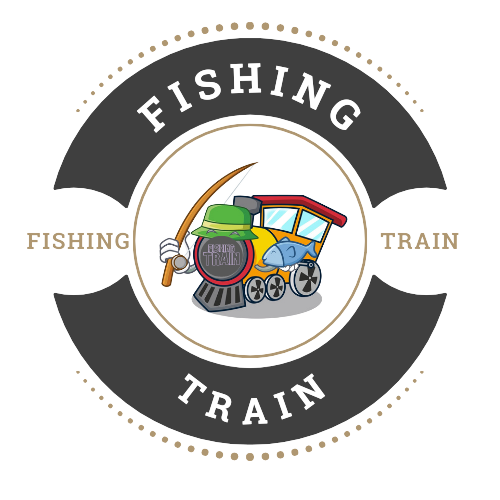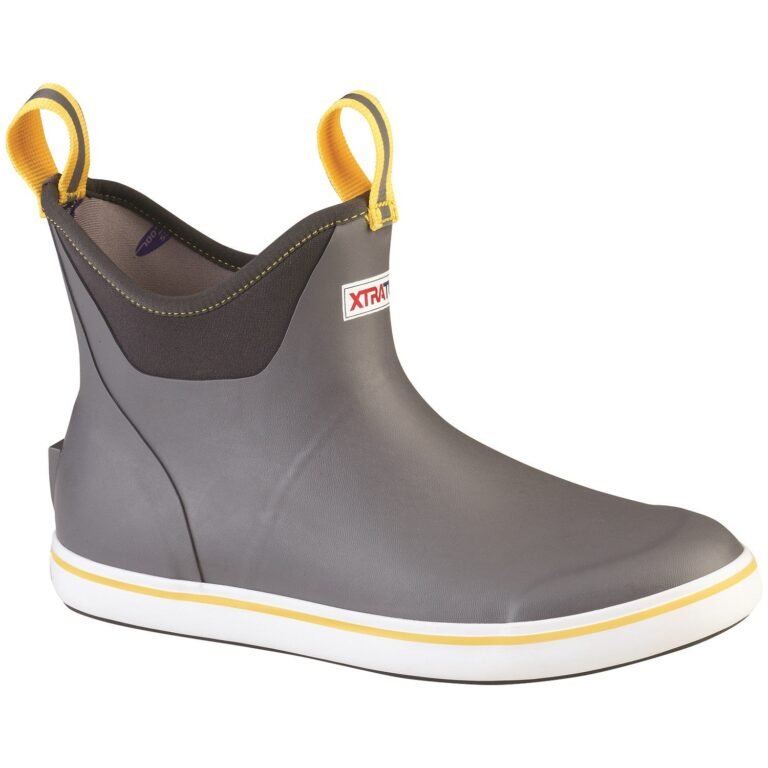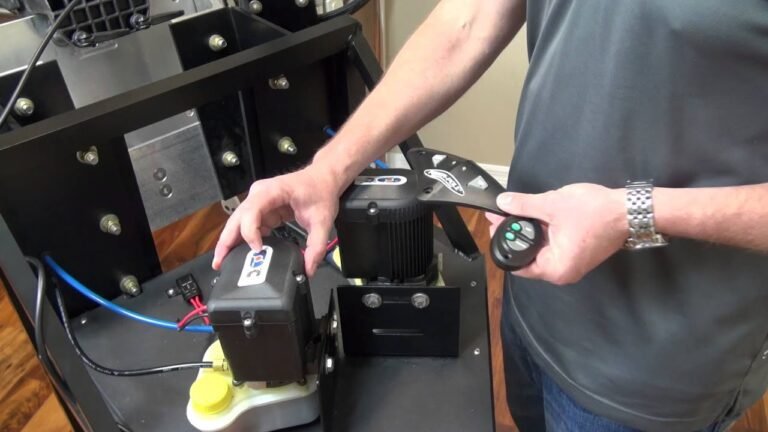Can You Add Brakes to a Trailer | Brake Installation 2025
Yes, you can add brakes to a trailer. There are two main types of brakes for trailers: electric and surge. Electric brakes are activated by a switch inside the tow vehicle, while surge brakes are activated by the weight of the trailer as it pushes down on a lever in the coupler.
- Attach the trailer to the tow vehicle and ensure that it is level
- Disconnect the electrical connection between the two vehicles
- Place jack stands under the trailer frame and raise the trailer off the ground
- Install brake drums on each wheel using lug nuts and torque to specifications
- Connect each brake line to its respective wheel cylinder using flare-nut wrenches
- Torque fittings to specifications
- 6 Bleed air from lines by opening bleeder screws and depressing brake pedal until fluid flows from screw without air bubbles 7 Lower jack stands and connect electrical wiring 8 Test brakes by depressing pedal while moving trailer forward slowly
Cost to Add Brakes to Trailer
Adding brakes to your trailer is a great way to improve safety and peace of mind when hauling. However, it’s important to know the cost implications of this upgrade before making the decision. Here’s what you need to know about the cost of adding brakes to your trailer.
The average cost of adding brakes to a trailer is between $200 and $400. This price range includes both electric and hydraulic brake kits, as well as installation costs. If you’re handy with tools and have some experience working on vehicles, you may be able to install the brakes yourself and save on labor costs.
If you’re considering adding brakes to your trailer, be sure to factor in the additional weight that will be added by the new hardware. This extra weight can impact fuel economy and handling, so keep that in mind when making your decision.
Overall, adding brakes to your trailer is a wise investment in safety.
The peace of mind that comes with knowing your vehicle is better equipped to handle heavy loads is worth the upfront cost. Just be sure to do your research and factor in all costs before making the final decision.
Fitting Brakes to an Unbraked Trailer
If you’re fitting brakes to an unbraked trailer, there are a few things you need to know. First, you’ll need to determine the type of brakes that are best suited for your trailer. There are two main types of brakes – electric and manual – and each has its own advantages and disadvantages.
Electric brakes are generally considered to be the more effective option, as they provide more stopping power than manual brakes. However, they can be more expensive to install and maintain, and they require a power source (usually a battery) in order to work. Manual brakes, on the other hand, are cheaper and easier to maintain, but they don’t provide as much stopping power as electric brakes.
Once you’ve decided on the type of brake you want to install, you’ll need to make sure that your trailer is properly equipped with the necessary hardware. This includes brake shoes or pads, cables or hoses (depending on the type of brake), and a controller (if using electric brakes). You’ll also need to ensure that your tow vehicle is compatible with the new braking system; if not, you may need to purchase an adapter kit.
Installing new brakes on your trailer can be a bit of a daunting task, but it’s definitely doable if you’re willing to put in some time and effort. With proper planning and preparation, you can have your new braking system up and running in no time!
Adding Electric Brakes to Boat Trailer
If you’ve ever had your boat trailer fail to stop, or even worse, cause an accident, you know the importance of having functioning brakes. Electric brakes are a great way to ensure that your trailer will always stop when you need it to. Here’s what you need to know about adding electric brakes to your boat trailer.
Most boat trailers come with standard hydraulic brakes, which are activated by a lever in the tow vehicle. Electric brakes, on the other hand, are activated by a switch in the vehicle and use electrically-actuated calipers at the wheels to provide stopping power. Many newer vehicles come equipped with an electrical brake controller that is mounted in the dash and wired to the trailer connector; this allows easy activation of the electric brakes without having to add any extra equipment to the vehicle.
There are several advantages of electric over hydraulic brakes for boat trailers. First, they’re much easier to install – no special fittings or hoses are required, just wire up the brake controller and connect it to your trailer’s existing wiring harness. Second, they’re less likely to fail than hydraulic brakes; if one wheel loses braking power (due to a blown fuse or damaged wiring), the other three will still provide adequate stopping power.
Finally, they’re more effective at lower speeds than hydraulic brakes, making them ideal for use in city traffic or crowded boat ramps.
If you’re thinking of adding electric brakes to your boat trailer, there are a few things you’ll need before getting started. First, check your vehicle’s owner’s manual; some vehicles cannot be safely towed with electric brakes due their electrical systems not being able to handle the additional loads placed on them by trailers with electric brakes.
Second, purchase an aftermarket brake controller and have it professionally installed – these units can be complex and confusing for inexperienced do-it-yourselfers! Lastly, make sure your trailer’s tires are rated for use with electricbrakes; higher speed ratings generally mean higher temperatures under braking conditions and could leadto tire failure if used on trailers without electricbrakes..
With these simple tips in mind, addingelectricbrakes toyour boattrailer will help keepyouand others safeon thenew open road!
Trailer Brake Kit
If you are looking for a way to improve the braking performance of your trailer, then a trailer brake kit may be the answer. Trailer brake kits can provide your trailer with the additional stopping power it needs to safely and effectively stop.
There are a variety of different types of trailer brake kits available on the market, so it is important to do some research to find the one that best suits your needs.
One type of kit uses an electric over hydraulic controller that mounts inside the cab of your tow vehicle. This type of system gives you more control over your trailer’s brakes and can provide more stopping power than other systems. Another type of kit uses an air-over-hydraulic controller that mounts on the outside of your tow vehicle.
This system is less expensive than electric over hydraulic controllers but may not provide as much stopping power. Whichever system you choose, make sure it is compatible with your tow vehicle and trailers before making a purchase.
Installing a trailer brake kit is generally not a difficult task, but it is always best to consult with an expert before beginning any work on your own.
Once installed, these kits can give you peace of mind knowing that your trailer will have the extra stopping power it needs when out on the road.
Trailer Axle With Brakes
Whether you are towing a small trailer or a large one, brakes are an essential safety feature. When shopping for a new trailer axle with brakes, there are several things to keep in mind. The first is the type of braking system you need.
There are two main types: electric and surge. Electric brakes are operated by a switch inside the vehicle, while surge brakes are activated when the trailer pushing against the tow vehicle slows down.
The next thing to consider is the size of your trailer and what it will be used for.
If you have a heavy-duty trailer that will be carrying lots of cargo, then you will need a more robust axle with stronger brakes. On the other hand, if you have a lightweight trailer that will mostly be used for recreational purposes, then you can get away with a less beefy axle with lighter-duty brakes.
Finally, think about where you will be doing most of your towing.
If you frequently tow in hilly or mountainous terrain, then look for an axle with brake controllers that can handle those conditions well. Similarly, if you live in an area with lots of rain or snow, look for brake controllers that can deal with wet weather without issue. By keeping all these factors in mind, you should be able to find the perfect trailer axle with brakes for your needs!

Credit: www.youtube.com
Can You Add Brakes to an Unbraked Trailer?
If you’re wondering whether you can add brakes to an unbraked trailer, the answer is yes – but there are a few things to keep in mind. First of all, your trailer must meet certain size and weight requirements in order to be legally equipped with brakes. Secondly, you’ll need to make sure that the brakes are properly installed and adjusted before hitting the road.
And lastly, it’s always a good idea to have your trailer serviced by a professional before adding any new components.
With that said, let’s take a closer look at each of these factors:
1. Size and Weight Requirements for Braked Trailers
In order for brakes to be legally required on a trailer, it must meet certain size and weight thresholds set by the Department of Transportation (DOT). In general, trailers over 3,000 pounds (1,360 kg) or with an axle-weight rating over 1,500 pounds (680 kg) must be equipped with brakes. Additionally, any trailers carrying hazardous materials are required to have brakes regardless of their size or weight.
2. Proper Installation and Adjustment of Trailer Brakes
It’s important to make sure that your trailer’s brakes are properly installed and adjusted before heading out on the road. This includes ensuring that the brake shoes or pads are making full contact with the drums or rotors; that the wheel cylinders are free from leaks; that the hoses and lines aren’t kinked or damaged; etc.
If you’re not confident in your ability to properly install and adjust trailer brakes yourself, it’s always best to seek out professional help. Depending on your particular setup, this could mean taking your trailer to a qualified mechanic or welder/fabricator.
What is Needed to Add Brakes to a Trailer?
If you’re looking to add brakes to your trailer, there are a few things you’ll need to do. First, you’ll need to determine what type of brakes you want. There are electric brakes and hydraulic brakes.
Electric brakes are typically used on lighter trailers while hydraulic brakes are used on heavier trailers. Once you’ve determined what type of brake system you want, you’ll need to purchase the appropriate parts. If you’re not sure what parts you need, it’s best to consult with a professional who can help ensure that you get the right components for your specific trailer.
Installing the new brakes is relatively straightforward, but will vary depending on the type of system you’ve chosen. Generally speaking, electric brake systems will require that you wire the new components into your existing electrical system while hydraulic systems will require that you plumb in the new lines and fittings. Again, it’s always best to consult with a professional if you’re unsure about how to properly install your new brake system.
Once everything is installed, be sure to test out your new brakes before hitting the road. You’ll want to make sure that they’re working properly and that they’re able to stop your trailer as needed. Brakes are an important safety feature so it’s crucial that they’re in good working order before heading out on any trips.
Can You Add Electric Brakes to an Existing Trailer?
If you have a trailer that didn’t come with electric brakes, you can usually add them yourself. You’ll need to purchase an electric brake kit, which typically includes the magnets, mounting brackets, wiring harnesses, and controller. Most kits are designed to be installed on trailers with existing hydraulic brakes.
To install the electric brakes, you’ll first need to remove the wheels and drums from your trailer. Then, you’ll mount the magnets onto the backing plates using the provided hardware. Once the magnets are in place, you can reattach the drums and wheels.
Next, you’ll need to connect the wiring harnesses to your trailer’s electrical system. The wires will need to be run from the battery through a fuse block or circuit breaker to the brake controller. Finally, you’ll install the brake controller itself according to the manufacturer’s instructions.
Once everything is installed and wired up correctly, test out your electric brakes by depressing the brake pedal while moving your trailer forwards. The brakes should engage smoothly and evenly without any pulsing or vibration. If everything seems to be working properly, congratulations!
You’ve successfully added electric brakes to your trailer!
How Much Does It Cost to Put Electric Brakes on a Trailer?
Adding electric brakes to a trailer can cost between $200 and $400, depending on the type of brakes and controller you choose. The most common type of electric brake is the surge brake, which uses hydraulic pressure created by the movement of the trailer to engage the brakes. Other options include electric drum brakes and disc brakes, which are more expensive but offer better braking performance.
Controller prices also vary widely, from around $50 for a basic model to over $200 for a high-end unit with features like proportional braking and LED diagnostics.
Does Your Trailer Need Brakes?
Conclusion
This is a great question that many people have. The answer is yes, you can add brakes to a trailer. There are kits available that make it easy to do this yourself.
You can also take your trailer to a shop and have them install the brakes for you. Adding brakes to your trailer will make it safer to tow and will give you more control when driving.





